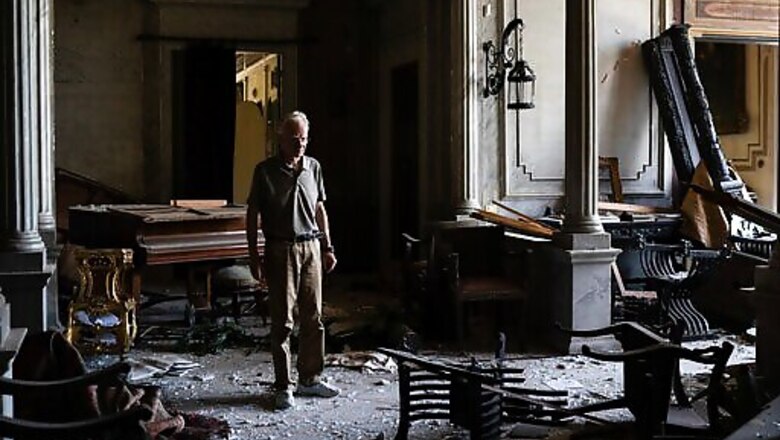
views
BEIRUT: One of Lebanon’s most prominent philanthropists and a pioneer defender of the country’s heritage, Lady Yvonne Sursock Cochrane, has died from injuries she suffered in the massive Aug. 4 explosion that ripped through Beirut. She was 98.
The family said Lady Cochrane passed away on Monday from her injuries. She was at home, at her familys Sursock Palace, one of Beirut’s landmarks, when the explosion happened last month. The palace, a storied building that took 20 years to restore after the end of Lebanon’s 1975-1990 civil war, was badly damaged in the blast.
At least 190 people were killed in the explosion at the Port of Beirut that also injured more than 6,000 and damaged tens of thousands of homes, including a number of the city’s heritage buildings.
Lady Cochrane was born in Beirut on May 18, 1922. She is a member of the wealthy Sursock Greek Orthodox family, which was originally from the Byzantine capital, Constantinople, and settled here in the 18th century. She married Sir Desmond Cochrane in 1946.
Her family built a number of residential buildings, schools and hospitals in Beirut’s eastern neighborhood of Achrafieh, where an area is named after the Sursocks. One of Beirut’s best art museums owned by her family was also damaged in the blast.
In 1960, she set up the Association for Protecting Natural Sites and Old Buildings in Lebanon to preserve the country’s cultural heritage and past. The association campaigned to preserve historic buildings, the National Museum, and turned restored sites into cultural sites in Beirut and other cities.
Lady Cochrane was concerned about the demise of Beirut’s architectural wealth and its mismanagement by the state. She fought against the destruction of old houses and real estate developers who sought to change the character of Beirut.
Beirut lives by the wind that comes from the sea, she said in a 2008 interview with Monocle, criticizing the reconstruction of downtown Beirut, including building skyscrapers at the seafront, after the end of the civil war.
She lamented what she described as Beirut failing to be the jewel of the Middle East because of bad administration, deteriorating environment, and the region’s recurrent bouts of violence. Government officials would list houses as heritage sites, then new ones would be appointed and only de-list them, she said, criticizing chaotic policies.
She also feared the ongoing brain drain from Lebanon because of continuous conflict, saying the country would be left with the bottom of the barrel.
Britain’s Ambassador to Lebanon Chris Rampling called her a queen of Beirut.
Lebanon & Beirut will miss you enormously, Rampling tweeted.
Disclaimer: This post has been auto-published from an agency feed without any modifications to the text and has not been reviewed by an editor



















Comments
0 comment